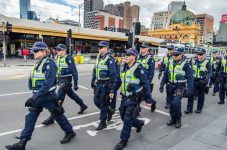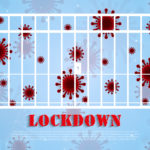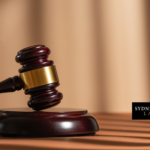A Further Increase of Police Powers in NSW?

After already adding to the police powers with reforms, the Attorney General Brad Hazzard wants to go even further down the path of increasing police powers in NSW, allowing for measures that his latest press release says will allow police to “get on with the job”.
According to police, the current Law Enforcement (Powers and Responsibilities) Act was “too complex” and hard for police to follow and get their job done.
One reform outlined in a May media release issued by the Attorney General’s department and the Minister for Police and Emergency Services was for police to be able to hold suspects for an additional extra two hours after they have been arrested.
This means that the total time that one can be held during an initial investigation will change from four to six hours.
Other proposals that will be implemented include:
- clarification of safeguards for people under arrest and those attending voluntarily;
- simplifying procedures which require police to give information when exercising powers;
- reviewing police training materials about police powers and the use of force;
- clarifying search powers and crime scene powers;
- collecting data on the use of drug detection dogs and reviewing police guidelines for searching and detaining during a drug search; and
- establishing a code of practice for move-on powers
The media release does not discuss how these aims will be implemented.
It does, however, bring up the issue that police who inadvertently fail to follow procedure when giving their name and station while carrying out a search or arrest, could see any evidence obtained during this time thrown out of court as inadmissible.
The current reform proposals seek to remedy this.
Yet there are persuasive reasons why the new reform whereby police are not required to abide by the rule that they must state their name and station is not the answer.
Courts have often come down on the side of the defendant where there was an attempt to admit inadmissible evidence by the prosecution. Judges have the discretion to exclude illegal or improperly obtained evidence in court – while this may have the effect that sometimes criminals get away with things to due technicalities, the law is really there to safeguard against police blatantly disregarding the rules collecting evidence improperly.
If there were no penalties for those police who acted illegally, there would be no disincentive to deter police away from it, and to act within the rules.
As the law regarding evidence now stands (according to the Evidence Act 1995, section 138), evidence obtained illegally can still be included, but only if the desirability of its inclusion outweighs the undesirability of evidence that has been obtained illegally or improperly.
The factors that the court should consider include:
- the nature of the offence;
- the importance of the evidence in the proceeding;
- the gravity of the impropriety or contravention by police; and
- whether the police acted intentionally or recklessly.
This means, for example, valuable evidence in a murder case is likely to be admitted particularly where the failure on the part of the police was not deliberate.
And the converse is true: for a more minor crime, or where there is other evidence which shows the same thing and if the police acted intentionally against the law, it is likely that the evidence can be excluded.
The rapid expansion of police powers, especially since Stuart Ayres has only been in the job of Minister for Police for under a month, comes as a cause of concern.
But this move to expand police powers is just the latest in a line of similar increases to police powers in NSW that the government started rolling out under new legislation drafted last year under the leadership of Barry O’Farrell. The former premier said that reforms on police powers would cut red tape as well as allow the police to perform their job.
These powers have all had a general trend of widening police powers: the increase of scenarios where police can arrest, as well as the removal of the principle that an arrest is a last resort.
Other police power expansion included the 24-hour precinct ban in the CBD as well as the ability of police to hand out a pretty hefty fine of $1,100 for drunk revellers who refuse to move on.






